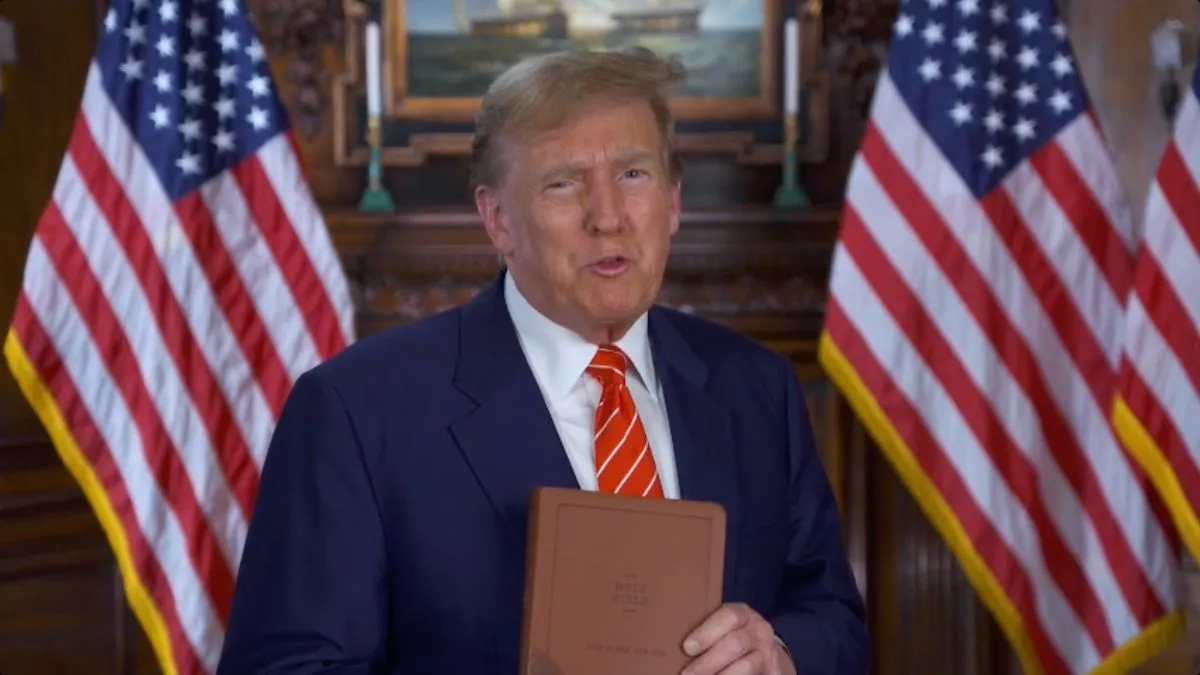In a stunning display of audacity, former President Donald J. Trump has embarked on a new venture aimed at alleviating his mounting legal fees and campaign costs: selling a Trump-endorsed, USA-themed Bible. This latest development, announced via a post on his Truth Social platform in late March, epitomizes the surreal convergence of religion, patriotism, and profit in the Trumpian universe.
Despite Trump’s claims of considerable personal wealth, reportedly upwards of $500 million in cash, the 77-year-old billionaire finds himself struggling to cover his legal expenses. Even with a recent reduction in his bond obligations to $175 million, Trump appears desperate for alternative sources of revenue.
Enter the “God Bless the USA” Bible, a specialty edition priced at $59.99 and adorned with a veneer of Americana. While conventional Bibles typically retail for a fraction of this cost, Trump’s version comes bundled with a selection of “exhaustingly American add-ons” designed to justify its premium price tag.
Among these additions are copies of quintessentially American documents such as the U.S. Constitution, the Declaration of Independence, the Bill of Rights, and even the Pledge of Allegiance. While these texts may be freely available online, their inclusion in Trump’s Bible serves a dual purpose: to enhance its patriotic appeal and to inflate its perceived value.
However, the irony of combining religious scripture with secular political texts is not lost on critics. The U.S. Constitution, revered as a cornerstone of American democracy, enshrines the principle of separation of church and state in its very first amendment. Yet, Trump’s Bible brazenly blurs the line between faith and governance, presenting itself as a patriotic symbol while disregarding the constitutional safeguards against religious coercion.
For observers both within and outside the United States, Trump’s “God Bless the USA” Bible is a glaring example of manipulation and exploitation. It targets individuals who conflate religion with nationalism, appealing to a demographic that views patriotism and American exceptionalism as synonymous with devout Christian faith.
Moreover, the commercialization of religion, particularly in the service of a former president embroiled in legal controversies, raises profound ethical concerns. By commodifying faith for personal gain, Trump not only undermines the sanctity of religious scripture but also tarnishes the reputation of Christianity itself.
In the end, Trump’s latest venture represents a disturbing fusion of faith and profiteering, emblematic of a culture in which moral principles are subordinated to financial interests. While it may find a receptive audience among Trump’s devoted base, it serves as a sobering reminder of the dangers posed by the unholy alliance of religion and politics in the pursuit of power and wealth.


